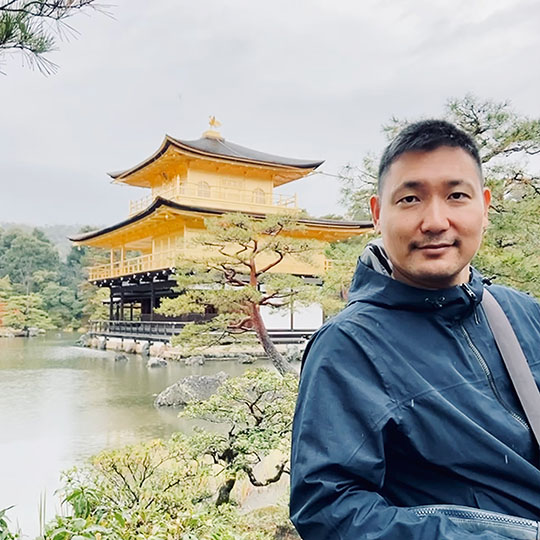Before the Law
January 19, 2022Our experiences and life stories shape who we are. In this feature, Jitsuro Morishita shares how becoming a novice monk in college gave him the tools to balance the inevitable tension that is behind every law.
Jitsuro’s Story

Jitsuro Morishita started his legal career with a shaved head and a clear mind. As a novice monk, Jitsuro learned how to maintain mental clarity and keep things in balance, even during his most hectic moments as an intellectual property partner. He shared a bit more of his slightly unconventional career path here.
Tell me about your experience with a Buddhist monastery.
When I was a sophomore at a college in Tokyo, I learned that it was a tradition for an ordinary person in Myanmar to go into monasteries or nunneries for temporary periods to practice the teachings of Buddha. Aiming to learn more about the religion that shaped the way of life in Japan in so many ways, I flew to Yangon that summer and found a monastery where I was shaved of my hair and robed as a traditional novice monk. At first, I was overwhelmed with the work—no talking whatsoever and at least eight hours of meditation per day—but towards the end of the three-week apprenticeship, I experienced a feeling of serenity and mental clarity that was beyond expectation. In fact, the most impactful moment for me was coming back to “this world” where I was shocked by the din and bustle of the outside world and the rate the acquired calmness in the mind faded away.
What made you change your path to the law?
My enthusiasm for intellectual property law derives from the same innate curiosity and insatiable thirst for knowledge that led me to pursue the path of Buddha. One good thing about Buddhism is that you can live in the world as a layman but live as a monk in spirit. While I enjoy practicing as an intellectual property attorney, I use my free time to keep practicing meditation and yoga, and use the teaching of Buddha as a guide for the journey of life.
Are you able to incorporate any of the Buddhist teachings in your work now?
Keeping in mind the most basic teaching from Buddha, the Noble Eightfold Path (right view, right resolve, right speech, right conduct, right livelihood, right effort, right mindfulness, and right concentration), helps to always be mindful of the inevitable tension that is behind every law, as well as the balance one must keep in order to best serve one’s clients. Also, Buddha’s precept on intoxication eventually led me to give up on drinking, which has proven to be one of the best decisions I have ever made, both for work and for personal life.